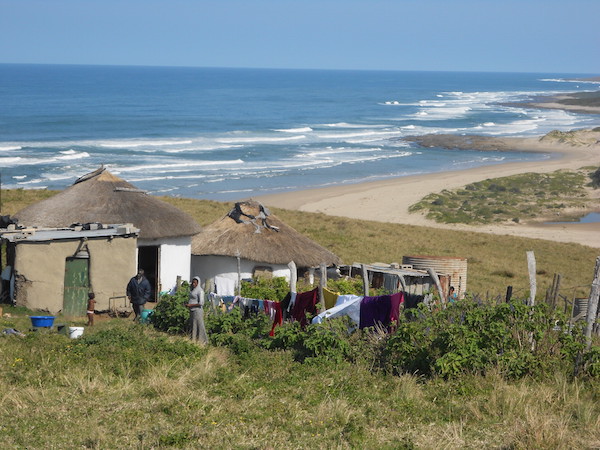By KARABO DIKOBE
Once you find something you are passionate about it, run with it. Opportunities will reveal themselves to you – as they did for 58-year-old PhD holder Deon ‘Div’ de Villiers.
De Villiers was recently awarded his PhD in biodiversity conservation on the Wild Coast by Rhodes University 15 years after obtaining his MSc at the University of the Transkei (Unitra). Like his PhD, his MSc focussed on things that interest him – forests and mammals.
He has worked in conservation for 38 years, 30 of them focused on the Wild Coast. His thesis explores the tensions between Western-style and local traditional conservation practices – and possible common ground.
“I have seen the efforts made to conserve the area, but I have also seen the importance of natural resource use for local people. If these seemingly opposing factors are not carefully managed, it can lead to conflict, which has often been the case historically”.
De Villiers’s believes in living life to the full. He writes down everything he wants to complete and then tackles it, “one bite at a time”. He describes life as one big adventure, not to be wasted on playing video games and watching television.
Initially, de Villiers did not aspire to obtain a PhD. “I just wanted to do the best that I could at conserving nature and kept learning about the ways of doing this. It took de Villiers several years to obtain his PhD because he waited to find a topic he was passionate about and a supervisor who shared that passion. He says the suitable supervisor will be your rock when you feel like throwing in the towel, mainly because no one else will necessarily understand what you are going through.
De Villiers warns that the road to a PhD (or any significant achievement) can be pretty lonely. This is when the passion and the keen interest come in and help you push through. Remember why you started!
For anyone feeling like it is too late to get that qualification or to learn that skill, de Villiers encourages you to remember that “your brain is like the rest of your body, you have to keep using it or it will degenerate. Identify a skill or subject you want to learn about and knuckle down and learn about it. And if you have skills and experience developed over the years, share your knowledge with others”.
Dr de Villiers’s parting words: “Just a sincere word of thanks to my supervisor, Prof Thembela Kepe, and the wonderfully supportive team at the Rhodes Geography Department. They helped to make it happen.”




